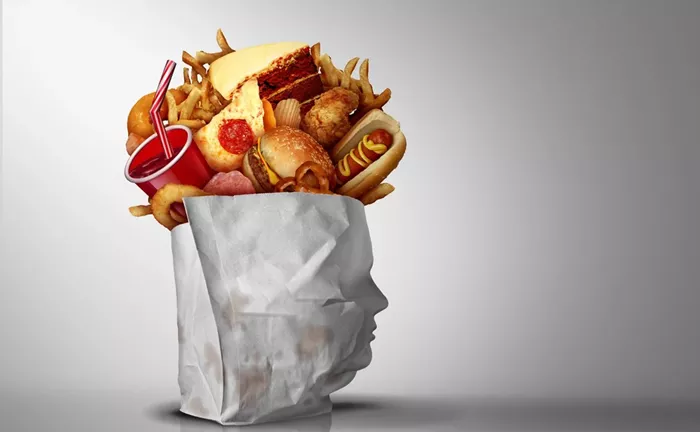A new study suggests that ultraprocessed foods, which have long been linked to cognitive decline and mental health issues, may contain microplastics that contribute to these problems.
Research published in Brain Medicine notes that microplastics, found in high amounts in processed foods like chicken nuggets, may be absorbed by the brain, especially since it has a high lipid content and receives substantial blood flow. The study also found that people with dementia had higher levels of microplastics in their brains compared to those without the disease.
Dr. Nicholas Fabiano, co-author of the study, explained that ultraprocessed foods might be a source of these harmful plastics. However, he stressed that more research is needed to confirm the link. Current evidence is associative rather than causative.
The Brain’s Vulnerability to Plastics
Microplastics accumulate in the brain more than in any other organ. The theory is that their lipid affinity makes it easier for them to enter and remain in brain tissue. Additionally, people with dementia tend to have leaky blood-brain barriers, which could allow more plastic to infiltrate their brains.
There is also concern about the effect of microplastics on developing brains, as children consume more ultraprocessed foods than adults. Dr. Julio Licinio highlighted that children, with smaller brains, may accumulate even higher concentrations of microplastics, potentially causing developmental harm.
Health Risks Beyond Dementia
While the research on the long-term effects of microplastics is limited, animal studies have shown a range of negative impacts, from inflammation to potential cancer. Dr. Leo Trasande from NYU Langone Health emphasized the urgent need to address the widespread use of plastics, linking them to health risks such as cardiovascular disease and premature birth.
Experts believe this research will prompt further studies to explore the real impact of microplastics on human health. Dr. Jo Ellen Wilson from Vanderbilt University Medical Center cautioned that dementia has many causes, though the results of this study are compelling.
What Can We Do?
To reduce exposure to microplastics, experts suggest avoiding processed foods and adopting healthier lifestyles. Dr. Trasande advises simple actions like avoiding non-stick cookware and plastic bottled water to limit plastic intake.
Related topics:


